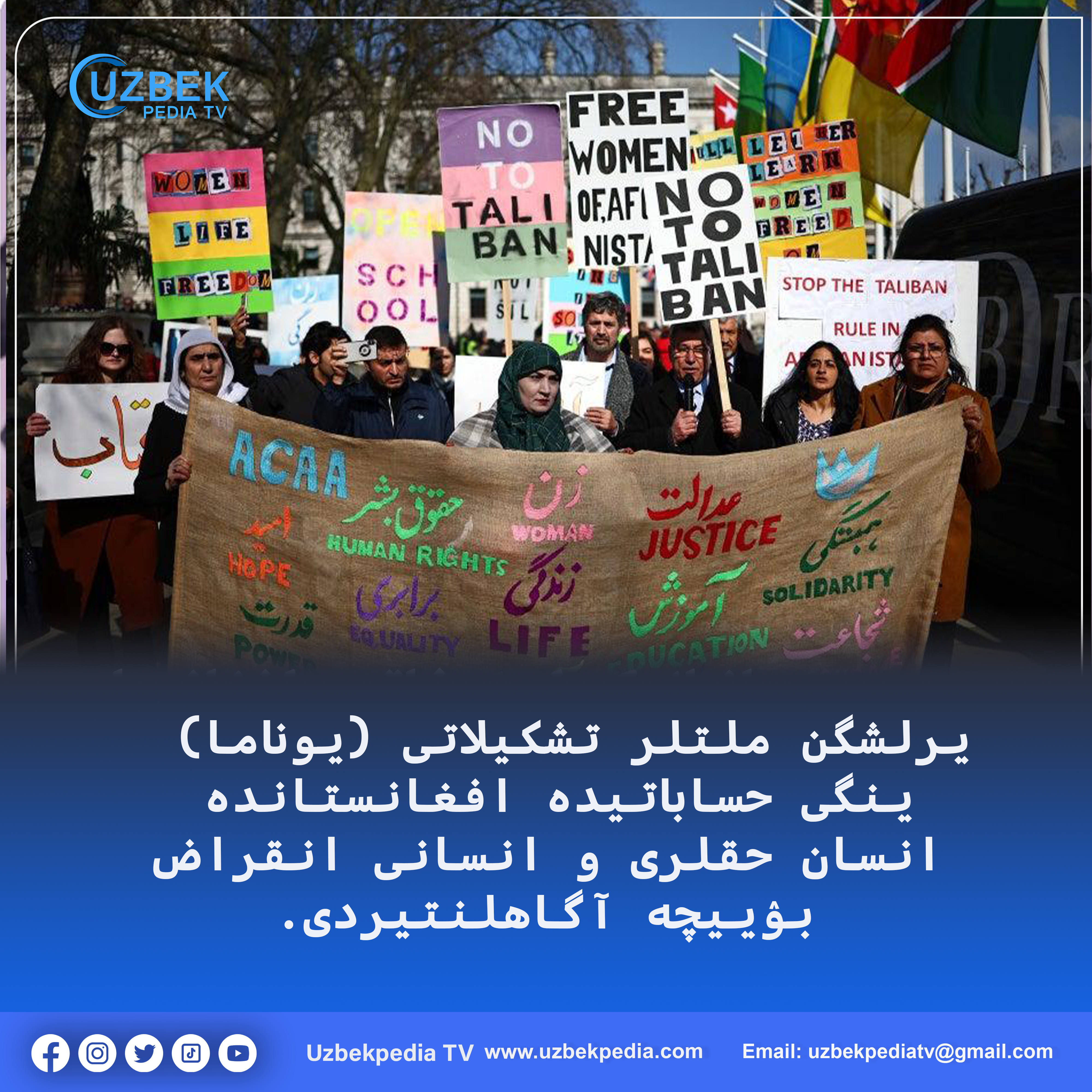Trending

UN Report Warns of Worsening Human Rights and Humanitarian Crisis in Afghanistan
The UN Secretary-General cautioned that the mass return of refugees could have severe consequences and called on the international community to take urgent action to support and protect the Afghan people.
The United Nations Assistance Mission in Afghanistan (UNAMA) has presented its latest quarterly report to the UN General Assembly and Security Council, warning of a worsening humanitarian and human rights situation in Afghanistan under Taliban rule.
The report expressed serious concern over intensified restrictions on women and girls, widespread human rights violations, and a deepening humanitarian crisis.
More than 1,6 million Afghans have been forcibly returned to the country this year, while the closure of more than 400 health centers has left millions without access to basic healthcare.
The UN Secretary-General cautioned that the mass return of refugees could have severe consequences and called on the international community to take urgent action to support and protect the Afghan people.
According to UNAMA, Taliban authorities continue to impose sweeping restrictions on civic life, with nearly 30,000 people imprisoned and protesters facing suppression, arbitrary arrest, and mistreatment.
Women and girls remain excluded from education and public life, while enforcement of strict dress codes and the closure of beauty salons have continued.
The report also highlighted forced marriages, gender-based violence, and the banning of women from university entrance exams.
The International Criminal Court has issued arrest warrants for Taliban leader Hibatullah Akhundzada and the group’s Chief Justice on charges of crimes against humanity, particularly gender persecution.
Marking their fifth year in power on 15 August 2025, the Taliban held a series of “accountability sessions” where leaders rejected democracy, emphasized obedience to their interpretation of Sharia law, and announced new restrictions, including censorship of poetry gatherings, bans on film production, and tighter controls on smartphones and social media.
Between May and July 2025, the UN recorded 2,658 security incidents, a nine percent increase from last year.
Although ISIS attacks declined, clashes with Pakistani forces rose, and dozens of UN staff members—particularly women—received death threats.
Economic challenges remain severe despite projected growth of 2,5 percent for 2024.
Afghanistan faces a persistent trade deficit, severe drought, and contamination from unexploded ordnance.
The Taliban have introduced a five-year development strategy focusing on governance and socio-economic development, but UNAMA reported that women and civil society remain excluded.
Humanitarian aid is under critical strain.
The 2025 Humanitarian Needs and Response Plan, targeting 16,8 million people, has received only 27 percent of the required $2,42 billion.
As a result, the World Food Programme is only able to assist 1 million people out of the 6 million initially planned.
More than 422 health centers have been shut down, affecting over 3 million Afghans, while nearly 9,5 million are projected to face acute food insecurity between May and October 2025.
UNAMA also reported a worsening drug crisis, with around 27000 people using narcotics in public spaces.
While opium and cannabis consumption have decreased, heroin and injectable drug use have sharply increased.
The UN Office on Drugs and Crime provided rehabilitation services to over 51000 drug users, including women and young people.
The Taliban continue to seek regional cooperation and recognition.
Officials have engaged in meetings in Russia, China, Iran, Turkey, and Central Asia.
Russia has already received the Taliban’s ambassador, signaling steps toward formal recognition.
Still, UN officials warned that without improvements in human rights and governance, Afghanistan risks further international isolation.
The report concluded that despite moderate security and limited economic growth, poverty, repression, and humanitarian suffering remain widespread.
UN leaders urged the global community to uphold its commitments to Afghanistan, warning that neglect would only fuel extremism, displacement, and instability Reporter Mohammad Fahim Azimi.
